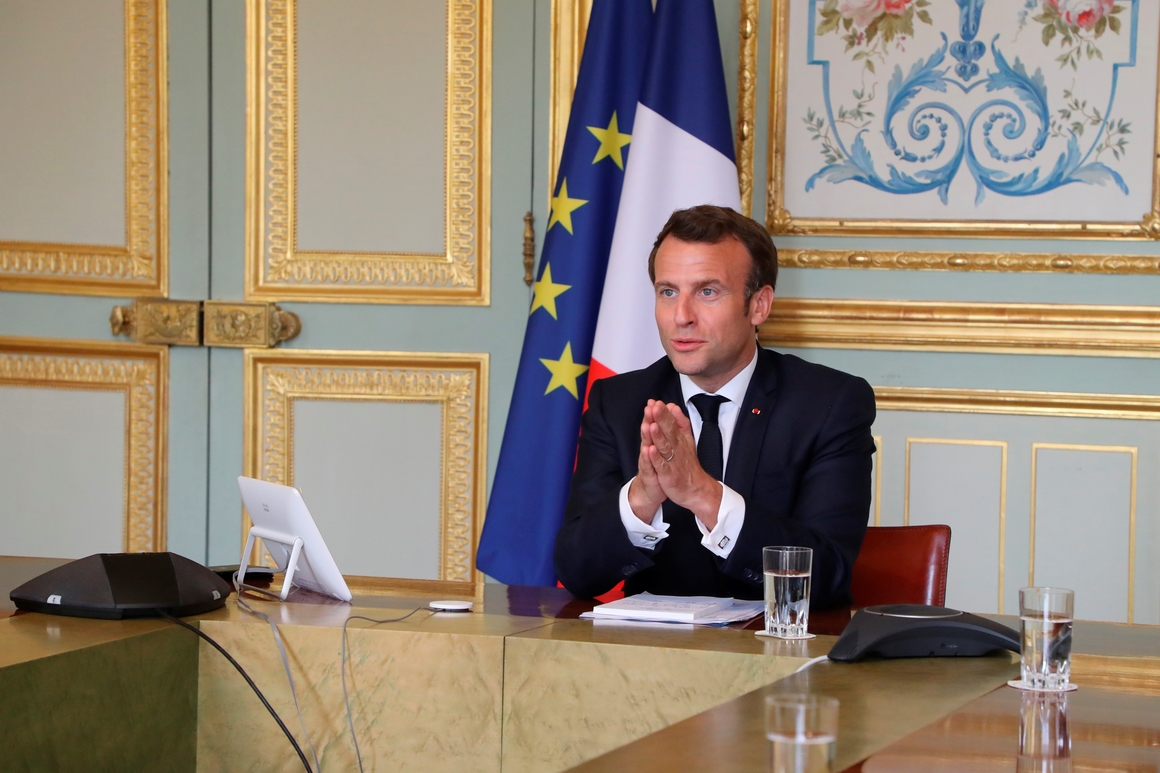
The institute’s findings suggest the government has been fighting an enemy that was within its borders much sooner than it thought, making the job of containing the spread that much harder. But the report has, characteristically, received little traction in a noisy media landscape more concerned with bashing the government’s approach and airing grievances about its handling of the crisis.
Public support for President Emmanuel Macron’s government has slipped since the start of the pandemic, with one recent poll finding that 62 percent of those questioned thought it incapable of bringing the virus under control.
This lack of trust comes at a bad time for the government, as it embarks on the hazardous task of ending aspects of the lockdown starting on May 11.
How did we get here? In the United States and Britain, where government failures and miscommunication have been far more serious and more frequent, a large section of public opinion remains supportive and even enthusiastic.
Not so in France. Partly, it’s a question of national character and of a sense of French exceptionalism.
The French are seldom satisfied with anything that their leaders do. And given the volatility of the coronavirus crisis, there has been plenty to criticize.
To be sure, the French government is not undeserving of criticism. Macron was at least a week too slow in imposing a lockdown. France has also been lamentably sluggish in building up its testing capacities and responding to shortages of face masks and other personal protective equipment.
But Macron’s government has, in fact, performed reasonably well in wrestling with an unprecedented, ill-understood and ever-changing foe.
The measures it has taken since the start of the crisis put France well ahead of some of its neighbors in mitigating the fallout. France was the first country to devise a generous economic support program for both businesses and individuals, for example. Some 11 million people are now receiving at least 80 percent of their normal wages from the state.
France was ingenious in its use of re-equipped high-speed trains to move very sick patients to hospitals in relatively untouched areas. It has succeeded in broadly confining the virus to the north and east of the country; its hospital system has never been overwhelmed.
Apart from a couple of recent glitches, the government has communicated clearly and honestly — especially in comparison to the nationalistic bluster in the United Kingdom and the United States or the caginess about mortality figures in the Netherlands and elsewhere.
And yet the overwhelming mood in France, not just on social media but in the mainstream media, is not just critical but viciously hostile. This is not just unjustified; it’s dangerous.
Conspiracy theories are flourishing, and every small misstep or change of direction prompts accusations from opposition politicians that the government is “lying.”
More than 30 legal complaints have been brought in France against the prime minister, health minister and other politicians for their alleged negligence in fighting the epidemic. Earlier this week, the Senate voted against a progressive loosening of the lockdown starting May 11. The vote was only symbolic, but it’s nonetheless had a concrete effect: It has added to a growing lack of trust in the government.
Compounding the problem for Macron is the fact that he doesn’t have the kind of unquestioning tribal, partisan support that others, like Donald Trump or Boris Johnson enjoy: no one to say he is “our man, right or wrong.”
Having leaped to power from outside the dominant tribes of media or political power, he is nobody’s “man” — and so for most of the country he is never right and always wrong.
Then there is something deeper at play: France’s love of abstraction and intellectual absolutism; its tendency to see everything as a matter of betrayal, conspiracy or national disgrace.
Right-wing commentators portray the shortage of hospital beds as symptomatic of a deep rot in the nation’s will and psyche. Left-wing politicians insist that it is the consequence of the ultra-liberal destruction of the French state (which actually spends over 8 percent of its GDP on the public health system, more than most other EU countries).
In truth, the fall in the number of hospital beds in France is the result of policies pursued by both left and right-wing governments to conform with changes in modern medical practice over the past decades. It was indeed a close call but, with ingenuity and help from its neighbors, French intensive care capacity has taken all COVID-19’s punches in the last six weeks.
Almost every government has got things wrong in the present crisis, some more seriously than others. But in no other country is there such a discrepancy between what the government actually got right and the cacophony of criticism hurled at it from the political classes or social and mainstream media.
Commentators, on both the right and left, have compared France’s response to COVID-19 to its “strange defeat” by Germany in 1940 — a phrase invented by the French historian Marc Bloch, who argued that the lazy certainties and mutual hostility between the political right and left in the 1930s created an instinctive defeatism in France that made German victory possible.
It is absurd to compare the muddled but largely respectable French campaign against COVID-19 with the military calamity of 1940. But Bloch’s warning about France’s destructive penchant for over-analyzing itself in partisan, self-denigrating, absolutist slogans remains as valid as ever.
Source: politico.com
See more here: news365.stream






